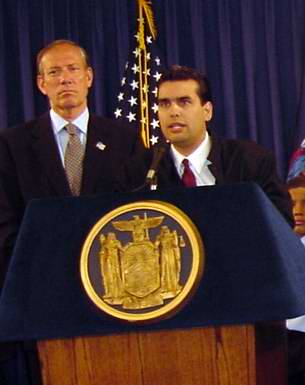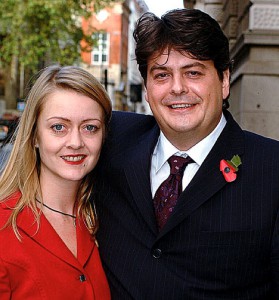I have been watching with a certain cynical interest the unfolding of Operation Weeting, one of the plethora of Metropolitan Police investigations into the UK phone hacking scandal, involving many of our favourite players: shady private investigators, predatory journalists, bent coppers, and politicians contorting themselves in an effort to protect both their own reputations and their Friends in High Places. And the ripples are spreading internationally. Nothing like a little bit of globilisation.…
 The Guardian newspaper has made most of the early running in exposing the corrupt practices of the now defunct News of the Screws, highlighting all the dubious tabloid practices of hacking, blagging, pinging, and god knows what else. All this done with the help of bottom-feeding private investigators, but also manifestly with the help of corrupt police officers who were not averse to the idea of taking a bribe to help their friends in Wapping. And how far might this “trickle down corruption” might have gone, um, up?
The Guardian newspaper has made most of the early running in exposing the corrupt practices of the now defunct News of the Screws, highlighting all the dubious tabloid practices of hacking, blagging, pinging, and god knows what else. All this done with the help of bottom-feeding private investigators, but also manifestly with the help of corrupt police officers who were not averse to the idea of taking a bribe to help their friends in Wapping. And how far might this “trickle down corruption” might have gone, um, up?
Despite the self-righteousness of other UK newspapers, it has also now become apparent that these dubious and potentially illegal practices were common throughout Fleet Street, and other national newspapers are also under investigation.
And yet it appears that all this could have been nipped in the bud over a decade ago, when Steven Nott, a concerned British citizen, tried to expose the vulnerability of mobile phones after he stumbled across the practice by accident. He took his findings to a variety of national newspapers, all of whom seem to have initially thought there was a good story, but every time the news was buried. Well, I suppose it would be, wouldn’t it — after all, why would hacks expose a practice that could be so useful?
But back to the dear old OSA and the media.
 In yesterday’s Observer newspaper, it was reported that the police have threatened the journalists at The Guardian with the Official Secrets Act (1989) to force them to disclose the identity of their source amongst the police officer(s) in Operation Weeting who leaked useful information to the newspaper to help its exposure of illegal practices. And, rightly, the great and the good are up in arms about this draconian use of a particularly invidious law:
In yesterday’s Observer newspaper, it was reported that the police have threatened the journalists at The Guardian with the Official Secrets Act (1989) to force them to disclose the identity of their source amongst the police officer(s) in Operation Weeting who leaked useful information to the newspaper to help its exposure of illegal practices. And, rightly, the great and the good are up in arms about this draconian use of a particularly invidious law:
“John Cooper, a leading human rights lawyer and visiting professor at Cardiff University, echoed Evans’s concerns. “In my view this is a misuse of the 1989 act,” Cooper said. “Fundamentally the act was designed to prevent espionage. In extreme cases it can be used to prevent police officers tipping off criminals about police investigations or from selling their stories. In this instance none of this is suggested, and many believe what was done was in the public interest.
“Cooper added: “The police action is very likely to conflict with article 10 of the European Convention on Human Rights, which protects freedom of speech.”
But I think he’s missing a bit of recent legal history here. The UK had the 1911 OSA which was supposed to protect the country from espionage and traitors, who faced 14 years in prison upon conviction. Needless to say this provision was rarely used — most of the cold war Soviet moles in the establishment were allowed to slink off to the USSR, or at the very most be stripped of their “K”.
However, as I’ve written before, the revised 1989 OSA was much more useful for the establishment. It was specifically put in place to stop whistleblowing after the embarrassment of the 1980s Clive Ponting/Belgrano case.
 The new act was specifically designed to strip away the “public interest” defence used by Ponting in his trial, and also to penalise journalists who had the temerity to report leaks and whistleblowing from the heart of the establishment. The OSA (1989) has been used extensively since the late 1990s, despite the fact that many senior figures in the former Labour government opposed its provisions when it went through Parliament. Journalists are just as liable as whistleblowers or “leakers” under the provisions of this act (the infamous Section 5).
The new act was specifically designed to strip away the “public interest” defence used by Ponting in his trial, and also to penalise journalists who had the temerity to report leaks and whistleblowing from the heart of the establishment. The OSA (1989) has been used extensively since the late 1990s, despite the fact that many senior figures in the former Labour government opposed its provisions when it went through Parliament. Journalists are just as liable as whistleblowers or “leakers” under the provisions of this act (the infamous Section 5).
So, back to The Guardian and its legal champions. I agree with what they are saying: yes, the 1989 OSA has a chilling effect on freedom of speech that unduly victimises both the whistleblower and the journalist; yes, it is a uniquely draconian law for a notional Western democracy to have on its books; yes, there should be a defence of “acting in the public interest”; and yes, the OSA should be deemed to be incompatible with Section 10(2) of the European Convention of Human Rights, guaranteeing free speech, which can only be circumscribed in the interests of “national security”, itself a legally undefined, nebulous, and controversial phrase under British law.
 But if all the outraged lawyers read up on their case law, particularly the hearings and legal dogfights in the run up to Regina v Shayler cases, they will see that all these issues have been addressed, apparently to the satisfaction of the honourable m’luds who preside over British courts, and certainly to the establishment figures who like to use the OSA as their “get out of jail free” card.
But if all the outraged lawyers read up on their case law, particularly the hearings and legal dogfights in the run up to Regina v Shayler cases, they will see that all these issues have been addressed, apparently to the satisfaction of the honourable m’luds who preside over British courts, and certainly to the establishment figures who like to use the OSA as their “get out of jail free” card.
So I wish The Guardian journalists well in this confrontation. But I have to say, perhaps they would not have found themselves in this situation today vis a vis the OSA if, rather than just a few brave journalists, the media institutions themselves had put up a more robust fight against its provisions during its bastard birth in 1989 and its subsequent abuse.
It has been reported today that the police may have downgraded their investigation to a purely criminal matter, not the OSA. Whatever happens does not obviate the need for the media to launch a concerted campaign to call for reform of the invidious OSA. Just because one of their own is no longer threatened does not mean the chilling threat of this law has gone away. As Martin Luther King said while imprisoned in 1963:
“Injustice anywhere is a threat to justice everywhere.”
I would also suggest the new generation working in the British media urgently read this excellent booklet produced by John Wadham of Liberty and Article 19 way back in 2000 Download Article_19_Liberty_on_OSA_2000, to remind themselves of fundamental arguments against draconian legislation such as the OSA and in favour of the freedom of the press.









